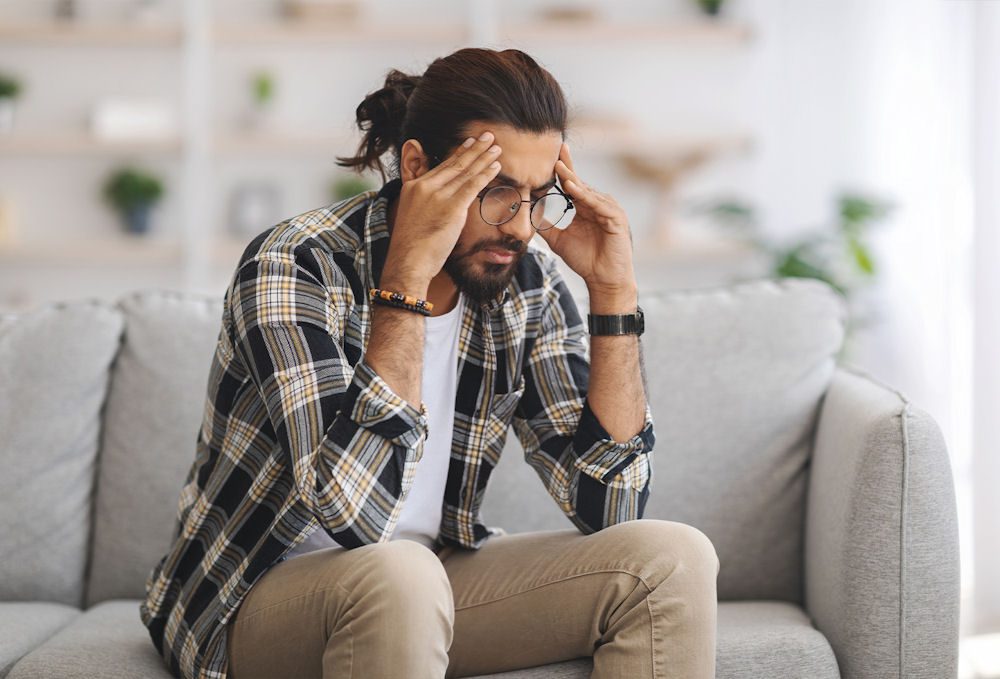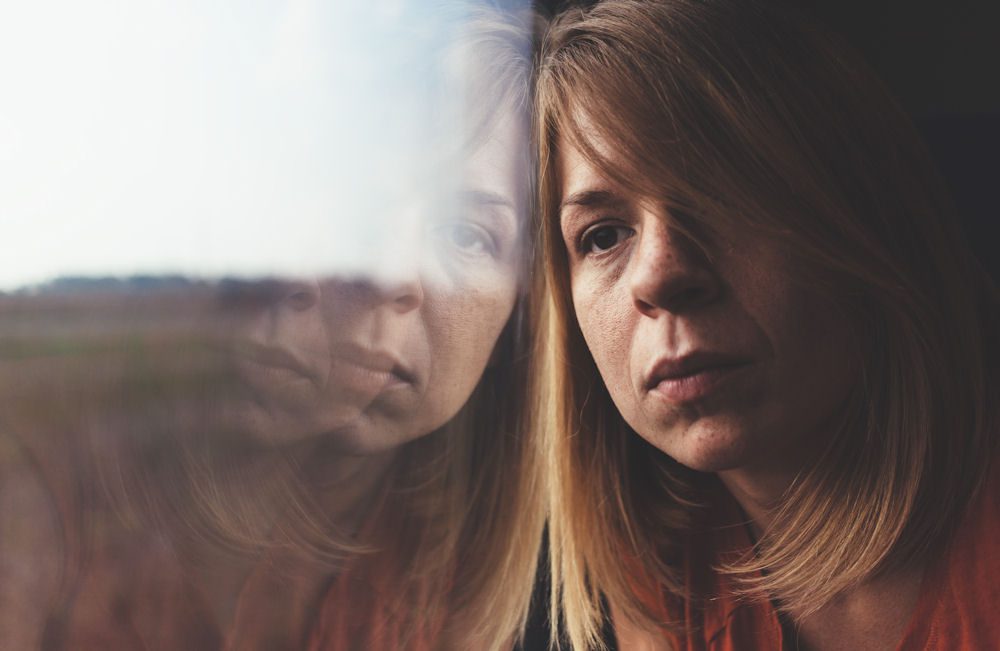Northern Illinois Recovery Center, a leading addiction treatment facility, focuses on holistic recovery. Addressing the phenomenon of “hangxiety,” we delve into the challenges of dealing with anxiety during hangovers.
By acknowledging the interconnectedness of physical and emotional well-being, we offer support and guidance to individuals navigating the complexities of addiction recovery while addressing the unique aspects of anxiety during the post-drinking recovery period. We want to create awareness by educating people on hangxiety, its causes, and its effects on our health.
If you think you might be developing dependence on alcohol, feel free to reach out to us. Our Illinois alcohol rehab center is among the best in the country and we can help!
What Is Hangxiety?

“Hangxiety,” a portmanteau of “hangover” and “anxiety,” refers to the heightened anxiety experienced during the post-drinking recovery period. After consuming alcohol, especially in excess, individuals often face not only the physical discomfort of a hangover but also increased levels of anxiety. This phenomenon can be attributed to various factors. Alcohol, a central nervous system depressant, initially induces feelings of relaxation. However, as the body processes it, there’s a rebound effect, leading to increased excitability and anxiety.
Biologically, alcohol impacts neurotransmitters like gamma-aminobutyric acid (GABA), which have a calming effect. When alcohol leaves the system, there’s a GABA deficiency, contributing to anxiety. Additionally, the impact of alcohol on sleep quality and hydration further exacerbates anxious feelings.
Psychologically, hangxiety may be influenced by regrets or concerns about actions taken while intoxicated. This interplay of biological and psychological factors can make the post-drinking period a challenging time for those prone to anxiety. For those in recovery from addiction, managing hangxiety becomes an integral part of a holistic approach to wellness, often addressed through specialized addiction programs provided by recovery centers like the Northern Illinois Recovery Center.
What Causes Hangxiety?
Hangxiety arises from a complex interplay of biological and psychological factors associated with alcohol consumption. Alcohol, a central nervous system depressant, initially enhances the effects of gamma-aminobutyric acid (GABA), a neurotransmitter that induces relaxation. However, as the body metabolizes alcohol, GABA levels decrease, leading to increased excitability and anxiety.
Biologically, alcohol disrupts the sleep cycle, contributing to fatigue and irritability, which can amplify anxious feelings. Dehydration, another common consequence of alcohol consumption, also plays a role in intensifying anxiety.
Psychologically, hangxiety is often influenced by alcohol’s impact on inhibitions and decision-making. Individuals may experience remorse, embarrassment, or heightened self-awareness about their actions while intoxicated, contributing to anxious thoughts.
Additionally, alcohol alters serotonin levels, a neurotransmitter associated with mood regulation. Fluctuations in serotonin can contribute to mood disorders and exacerbate feelings of anxiety during the hangover phase.
Understanding the multifaceted nature of hangxiety is essential for developing effective coping mechanisms. Strategies such as moderating alcohol intake, staying hydrated, and addressing underlying psychological factors can mitigate the impact.
Hangxiety Symptoms
The most common hangxiety symptoms include:
- Headaches: Alcohol-induced dehydration and changes in blood vessel dilation contribute to headaches. The brain, deprived of fluids, contracts, causing pain.Nausea: Excessive alcohol irritates the stomach lining, leading to nausea. The body’s attempt to expel toxins can result in vomiting, exacerbating physical discomfort.Fatigue: Disrupted sleep patterns caused by alcohol impact the quality of rest, leading to physical exhaustion and an overall sense of weariness.Dehydration: Alcohol’s diuretic effects increase urine production, causing dehydration. This can intensify headaches, fatigue, and irritability.
- Racing Thoughts: The overactive mind during a hangover is characterized by persistent, rapid thoughts, making it challenging to focus or find mental rest.Restlessness: Feelings of unease and restlessness stem from both physical discomfort and heightened anxiety, impacting overall mental well-being.
Guilt and Shame: Intense emotions related to actions during intoxication contribute to feelings of guilt and shame, creating emotional distress.
Regret: Emotionally, individuals may experience regret regarding choices made while under the influence, intensifying emotional distress during the hangover phase.
Irritability: Changes in neurotransmitter levels, including serotonin, can lead to irritability, making it challenging to interact with others or handle stress.
Increased Sensitivity: Heightened sensitivity to light, sound, and other stimuli may occur, contributing to an overall sense of discomfort.
Difficulty Concentrating: Cognitive impairment may manifest as difficulty concentrating, impacting productivity and day-to-day tasks, further adding to the cognitive challenges during a hangover.
How Long Does Hangxiety Last?

The duration of “Hangxiety” can vary among individuals and depends on factors such as the amount of alcohol consumed, individual tolerance, and overall health. Typically, symptoms peak during the hangover phase, which commonly occurs within the first few hours after waking. The physical symptoms, such as headaches and nausea, may diminish throughout the day as the body processes and eliminates alcohol.
Psychological symptoms, including anxiety and emotional distress, can persist for a more extended period. In some cases, they may extend beyond the immediate hangover and last for one to two days.
How Can Hangxiety Be Avoided?
There are some healthy habits one can incorporate into their routine to avoid suffering from hangxiety. Namely
- Set Limits: Establish a predetermined limit on the number of drinks to avoid excessive alcohol consumption.Alternate with Water: Intersperse alcoholic beverages with water to stay hydrated and pace the rate of alcohol intake.Choose Lower Alcohol Content: Opt for drinks with lower alcohol content, such as beer or wine, to reduce the overall impact.
- Consistent Hydration: Drink water before, during, and after consuming alcohol to counteract the dehydrating effects of alcohol.Alleviate Symptoms: Adequate hydration can help alleviate symptoms like headaches and fatigue associated with a hangover.
Nutritious Pre-Drinking Meal: Consume a balanced and nutritious meal before drinking to slow down alcohol absorption and provide essential nutrients.
Buffer Against Hangover: A well-balanced meal acts as a buffer against the intensity of a hangover by promoting a gradual release of alcohol into the bloodstream.
Individual Tolerance Awareness: Be mindful of individual tolerance levels to alcohol and recognize personal limits.
Know When to Stop: Understanding when to stop drinking prevents excessive alcohol consumption and reduces the risk of severe hangovers.
Spaced Consumption: Space out the consumption of alcoholic beverages over time to prevent binge drinking episodes.
Gradual Metabolism: Consuming alcohol gradually allows the body to metabolize it more effectively, reducing the likelihood of intense hangovers.
Adequate Rest: Ensure sufficient rest after drinking to support overall well-being and recovery Relaxation Activities: Engage in activities that promote relaxation, such as reading, listening to music, or taking a warm bath, to alleviate stress.
Non-Alcoholic Social Options: Seek social activities that don’t involve alcohol to diversify leisure choices.
Healthier Coping Mechanisms: Develop healthier coping mechanisms for stress and relaxation, reducing reliance on alcohol as a means of unwinding.
What Is The Cure For People With Hangxiety?
While there isn’t a direct “cure” for hangxiety, there are several strategies to alleviate its symptoms and promote overall well-being:
Hydration: Replenish fluids by drinking water to counteract the dehydrating effects of alcohol, which can contribute to headaches and fatigue.
Rest and Sleep: Allow the body to recover by getting adequate rest and sleep, as disrupted sleep patterns are common after alcohol consumption.
Nutritious Food: Consume a balanced diet with an emphasis on nutrient-rich foods to provide energy and support the body’s recovery.
Mild Exercise: Engage in light physical activity, such as a short walk, to stimulate blood flow and alleviate feelings of restlessness.
Caffeine in Moderation: While caffeine can provide a temporary energy boost, consume it in moderation to avoid exacerbating anxiety or disrupting sleep.
Mindfulness and Relaxation: Techniques: Practice mindfulness or deep-breathing exercises to calm the mind and reduce anxiety.
Over-the-counter Pain Relief: Consider using over-the-counter pain relievers for headaches, following recommended dosages.
Limit Alcohol Consumption: Moderation or abstinence from alcohol is the most effective prevention for hangxiety. If hangxiety is a recurring issue, reconsidering alcohol consumption may be beneficial.
Professional Support: Seek professional help if feelings of anxiety or guilt persist. Seeking therapy or addiction counseling in Illinois can provide strategies to cope with the emotional aspects of hangxiety.
Learn from Experiences: Reflect on the triggers for excessive alcohol consumption and develop strategies to avoid or manage these situations in the future.
How Does Alcohol Addiction Feed Into Hangxiety?
Alcohol addiction contributes to hangxiety by perpetuating a cycle of dependence. Regular alcohol consumption alters brain chemistry, impacting neurotransmitters like GABA and serotonin. The body becomes reliant on alcohol to achieve a sense of relaxation, leading to increased tolerance and the need for higher amounts. As alcohol leaves the system, there’s a rebound effect, intensifying anxiety.
The emotional toll of addiction, including guilt and regret from past actions, further amplifies hangover-induced anxiety. This intricate interplay between alcohol’s physiological effects, dependency, and the emotional aftermath fuels the cycle of hangxiety within the context of alcohol addiction.
NIR Can Help You Overcome Alcohol Addiction

Northern Illinois Recovery Center (NIR) is dedicated to guiding individuals through personalized programs to overcome alcohol addiction. Our supportive and effective approach addresses both the physical and emotional aspects of recovery.
Take the first step towards a healthier life by reaching out to us. Contact NIR today for comprehensive and compassionate assistance on your journey to lasting sobriety. We’re here to help you.



